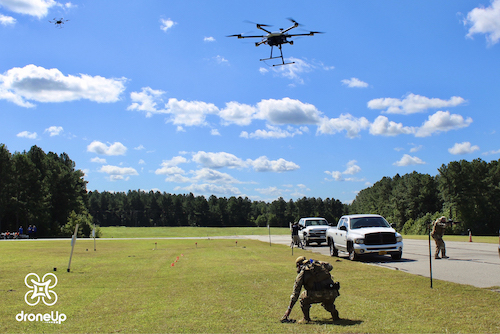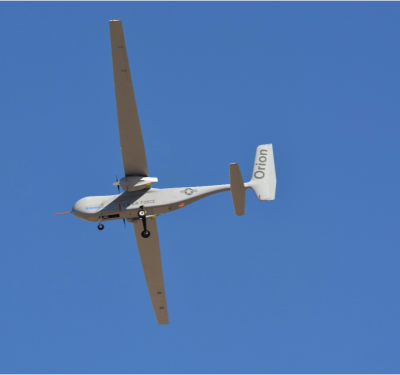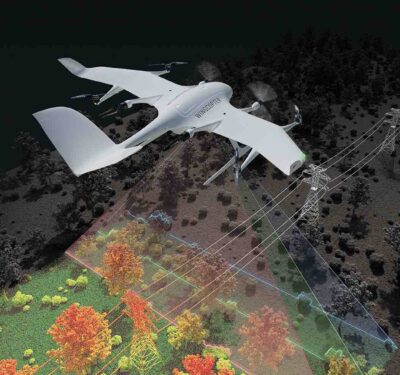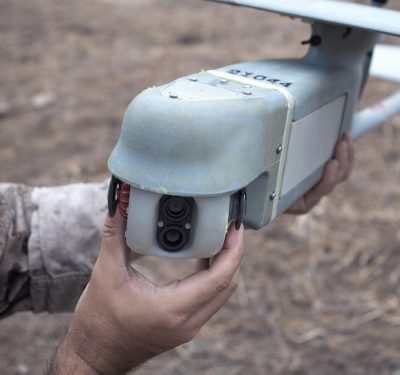 Using its patent-pending delivery solution, Combat Drone Services, DroneUp recently demonstrated how UAS can be used to deliver specific payloads to identified recipients in a field-firing environment—a drone delivery first that has the potential to create new military technologies.
Using its patent-pending delivery solution, Combat Drone Services, DroneUp recently demonstrated how UAS can be used to deliver specific payloads to identified recipients in a field-firing environment—a drone delivery first that has the potential to create new military technologies.
The experiment, Autonomous Last Mile Resupply, was completed in partnership with the North Atlantic Treaty Organization (NATO) Allied Command Transformation, Joint Force Development Directorate, Operational Experimentation (OPEX) Branch, according to a news release. The special operations experimental team also included Pale Horse Weapons Institute, Daniel Defense, Ultimate Training Munitions (UTM) and WeaponLogic.
The drone was tasked with identifying and delivering specific payloads to three different recipients. After locating each recipient, the drone autonomously delivered three unique payloads, with visual confirmation made that the correct payload was delivered. The requirements also had to prove where the recipient was either static or mobile. Lieutenant Colonel Michael Atkinson, MBE, British Army led the experiment.
“Drone deliveries create numerous opportunities. By allowing for variable delivery destinations that can be transmitted and updated in real time, we’ve taken it to orders of magnitude over the traditional point-to-point drops,” DroneUP CTO John Vernon said, according to the release. “Additionally, when paired with automated logistics, the ability to get the right supplies, to the right people, at just-in-time speed creates a powerful platform for land, sea and air.
“By combining the right location information, signaling and management tools,” he continued, “we’ve created an intermodal solution that quickly addresses what is needed and the best way to get it where it needs to go. Then we’ve placed the power in the requestor’s hands to determine when, how and where the delivery will take place.”
The dedicated colored UTM training ammunition enabled the team to demonstrate the accuracy and reliability autonomous drones offer during take-off, flight, location of, and delivery to a specified recipient in open terrain, with no external assistance. The successful experiment shows this “capability has vast utility across numerous military and deployed roles.” It has the potential to be particularly useful for emergency medical resupply and in assisting isolated personnel.
Findings from the experiment, which was completed in Lawrenceville, Virginia, will be shared across several Allied Command Transformation (ACT) branches for further concept development.






